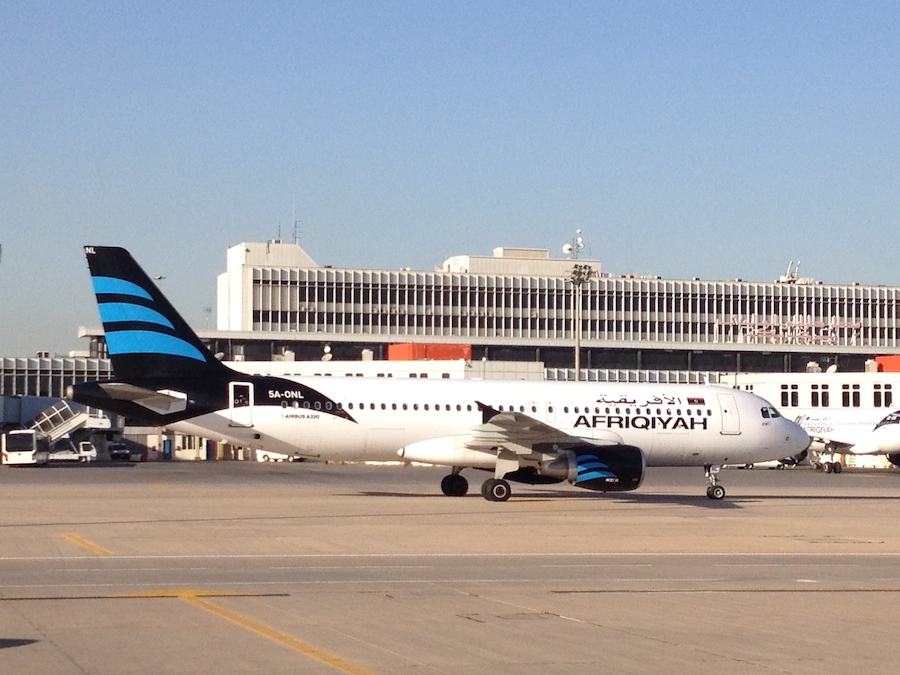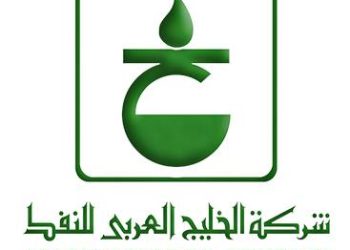By Michel Cousins.

Tripoli, 25 February 2014:
Libya’s Afriqiyah Airways has signed an agreement with an Irish aviation company . . .[restrict]that should enable it to fly again unrestricted into Europe by the beginning of May.
Under the two-year deal signed earlier this month, Dublin-based Air Contractors Ltd (ACL) will operate three of Afriqiyah’s latest Airbus 320s on European routes using the carrier’s existing crews and ground staff. It means that the airline will no longer be shackled by the ban on Libyan aircraft flying into EU airspace in force since April 2012.
“The only way to operate again [in Europe] was to get our aircraft registered elsewhere,” Afriqiyah’s CEO Abubaker Elfortia has told the Libya Herald.
The sole difference passengers will see, he says, is a change in the registration number on the back of the aircraft – from one beginning 5A (the code for Libya) to EI (for Ireland). The staff will be the same, the logo and colours the same, the service the same.
The target date for agreement coming into effect the end of April. “We have the support of the Libyan Ministry of Transport, the Irish Department of Transport [Tourism and Sport], and the Irish Aviation Authority,” Elfortia explains.
Libya aircraft have been operating a self-imposed ban since April 2012 over EU concerns about Libyan aviation standards. It went for a self-ban because one imposed by the EU, once in place, would take much longer to lift. Originally it was expected that it would end in November 2012, by which point the European concerns would have been addressed. In the event, the date has long gone and despite regular Libyan announcements that an end is in sight, aviation sources have told this newspaper that the issues involved proved more challenging than anticipated.
Until now the only way around it was to wet lease aircraft from countries where the aviation authorities conformed to European standards. It has largely meant operating with Tunisian aircraft. But for Afriqiyah, that could only be a short term option. It is a very expensive solution for what is a very commercially focussed despite being state-owned. “We are a commercial entity to all extents and purposes”, says Elfortia. “There is no government interference.”
The cost of the ban is not just limited to wet leasing. Even flying from Tripoli to Istanbul is affected. Libyan aircraft have to fly around Greek airspace and then head north to Istanbul. It adds time to the flight, with all the extra costs involved.
In any event, even if Afriqiyah it could continue wet-leasing aircraft indefinitely, it is unlikely to be an option for much longer. Its Tripoli-Dusseldorf route appears likely to fall foul of German demands that only European Aviation Safety Agency (EASA)-approved operators fly into the country.
Afriqiyah is keen to emphasise that the new agreement it does not mean Irish crews and maintenance staff taking over. Libyan staff will continue to operate flights into Europe. They will be given a short period of familiarisation training, such as happens when a pilot changes airline or type of aircraft. This is expected to start next month, with the training provided by ACL, mostly in Germany. It will involve over 40 existing members of staff – pilots, cabin crew and ground-maintenance personnel.
Afriqiyah had been dissuaded from registering in other Arab countries for two reasons, Elfortia says, because standards in Europe are higher and because European registration opens many other commercial doors to the carrier.
Being registered in Europe, the aircraft can take advantage of Europe’s Open Skies policy. It means that Afriqiyah could apply to operate routes within Europe, flying, for example, between Paris and Athens or combining routes such as Tripoli-Rome and Tripoli-London into Tripoli-Rome-London and being able to fly passengers on the London-Rome sector alone.
Secondly, because, under EASA rules, European-registered aircraft must be maintained by crews trained to EASA standards, it opens the door to Libya having the highest maintenance standards in the Arab world and being able to use it commercially.
Under EASA’s JAR 145 policy for approved maintenance organisations, only EASA-approved engineers can maintain EU-registered aircraft. But there are no such registered engineers in Libya; European airlines flying into Tripoli and Benghazi have to bring their maintenance staff with them on board each flight or fly them in when there is a problem.
Once Afriqiyah has staff who conform to JAR 145, it can contract them for maintenance operations on European carriers’ aircraft landing in Libya. That would mean extra jobs for Libyan aircraft engineers. “It’s very significant commercially,” Elfortia notes. Afriqiyah sees it as a potential major revenue earner which it would like to develop. And already it is thinking of setting up operations with JAR 145-approved engineers elsewhere in the Middle East and Africa.
Meanwhile, with the ACL agreement in hand, Afriqiyah says it is already planning extra European destinations once it is up and running.
At present it flies to London, Paris, Rome and Dusseldorf. [/restrict]








